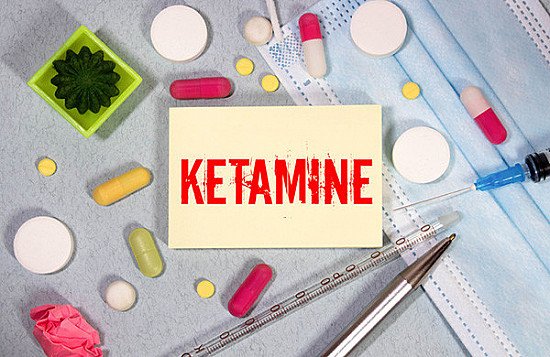In recent years, ketamine therapy has emerged as a promising treatment for various mental health conditions, including depression, anxiety, PTSD, and chronic pain. While traditionally known as an anesthetic, ketamine’s unique properties have garnered attention for its rapid-acting antidepressant effects. For residents of Queens, understanding the benefits, procedures, and potential outcomes of ketamine therapy can help determine if this treatment is the right option.
What is Ketamine Therapy?
Ketamine therapy involves the administration of ketamine, typically through intravenous (IV) infusions, intranasal sprays, or intramuscular injections. Unlike conventional antidepressants, which may take weeks to show effects, ketamine can provide relief within hours or days. This rapid response makes it an attractive option for individuals who have not found success with traditional treatments.
How Does Ketamine Work?
Ketamine works differently than standard antidepressants. It primarily targets the N-methyl-D-aspartate (NMDA) receptor in the brain, leading to an increase in the neurotransmitter glutamate. This boost in glutamate promotes neuroplasticity—the brain’s ability to adapt and change—which can help alleviate symptoms of depression and anxiety.
Conditions Treated with Ketamine Therapy
Ketamine therapy is being explored for various conditions, including:
- Major Depressive Disorder (MDD): Particularly effective for treatment-resistant depression.
- Post-Traumatic Stress Disorder (PTSD): May help reduce symptoms related to trauma.
- Generalized Anxiety Disorder (GAD): Provides quick relief for anxiety symptoms.
- Chronic Pain Syndromes: Used as part of a comprehensive pain management plan.
Benefits of Ketamine Therapy
1. Rapid Relief from Symptoms
One of the most significant advantages of ketamine therapy is its speed of action. Many patients report significant improvement in their symptoms within hours after treatment, making it particularly valuable for those in crisis or experiencing suicidal thoughts.
2. Treatment-Resistant Cases
For individuals who have not responded well to traditional antidepressants or therapy, ketamine offers a new avenue for relief. Its unique mechanism can provide hope for those who feel stuck in their mental health journey.
3. Minimal Side Effects
When administered in controlled environments by trained professionals, ketamine therapy generally has fewer side effects than many traditional medications. Common side effects, such as temporary dizziness or dissociation, typically resolve shortly after the treatment.
4. Improved Quality of Life
Patients often report enhanced mood, increased energy, and a greater sense of well-being following ketamine therapy. These improvements can lead to better overall quality of life and the ability to engage more fully in daily activities.
What to Expect During Ketamine Therapy
Initial Consultation
Before starting ketamine therapy, you will undergo a thorough evaluation by a healthcare professional. This assessment includes:
- A detailed medical history and mental health assessment.
- Discussion of symptoms and treatment goals.
- Consideration of any contraindications or potential interactions with other medications.
Treatment Sessions
- Administration: Ketamine can be administered through IV infusions, nasal sprays, or injections. The most common method is IV infusion, which typically lasts about 40 minutes to an hour.
- Frequency: Treatment regimens may vary. Many providers start with a series of sessions over a few weeks, followed by maintenance treatments as needed.
- Monitoring: Patients are monitored during and after the session to ensure safety and comfort.
Follow-Up Care
Post-treatment follow-ups are essential for evaluating progress and making necessary adjustments to the treatment plan. Ongoing support may include therapy sessions or lifestyle modifications to complement the effects of ketamine.
Is Ketamine Therapy Right for You?
Determining if ketamine therapy is suitable for you involves considering several factors:
- Mental Health Conditions: If you have treatment-resistant depression, PTSD, or other anxiety disorders, ketamine therapy may be a viable option.
- Previous Treatment Attempts: Individuals who have tried multiple medications without success could benefit from the rapid relief ketamine offers.
- Medical History: A comprehensive assessment by a healthcare professional is essential to rule out any potential risks or contraindications.
Considerations and Precautions
- Medical Supervision: Ketamine therapy should always be conducted in a controlled medical environment under the supervision of qualified professionals.
- Potential Side Effects: Although generally well-tolerated, it’s essential to discuss any concerns regarding side effects or interactions with current medications.
- Not a Cure-All: While ketamine therapy can provide significant relief, it is not a replacement for comprehensive mental health treatment. Ongoing therapy and support may still be necessary.
Conclusion
Ketamine therapy represents a groundbreaking approach to treating mental health conditions, particularly for those who have struggled with conventional treatments. For residents of Queens considering this option, the combination of rapid relief and minimal side effects makes it a compelling choice. However, it’s essential to consult with a qualified healthcare provider to discuss your specific circumstances and determine the best course of action for your mental health journey. With the right support and treatment, ketamine therapy can pave the way for renewed hope and improved quality of life.

